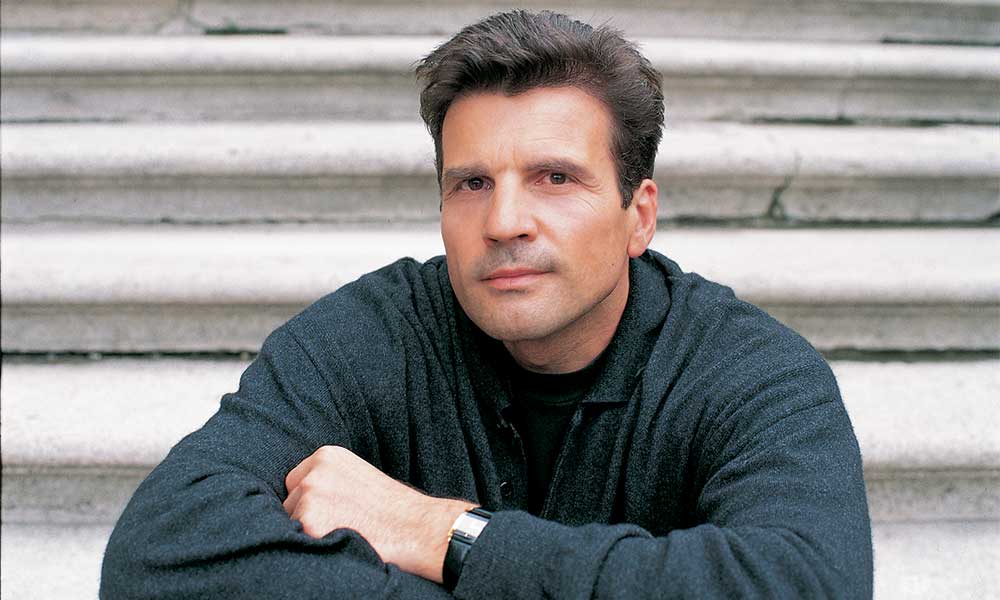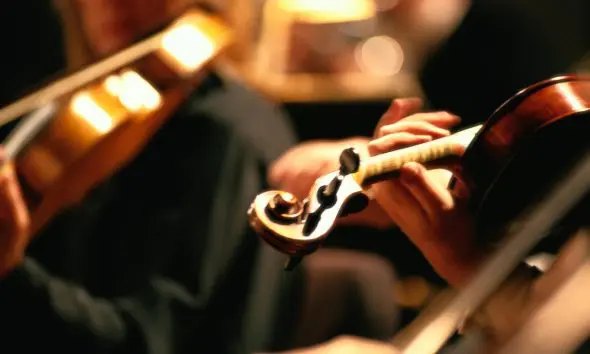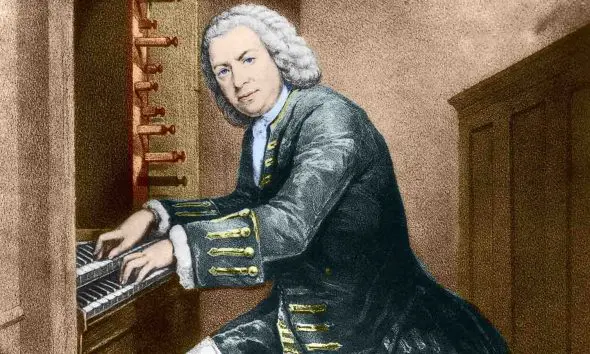Wolfgang Holzmair: 70th Birthday Celebration
To celebrate Wolfgang Holzmair’s 70th birthday, and the release of ‘The Philips Recitals’, we pay tribute to the Austrian baritone.

Wolfgang Holzmair has long been recognised as one of today’s most accomplished and intelligent Lieder singers. He brings a refinement and subtlety to his performances worthy of the great German Lieder baritones, but it is the silky elegance of his voice that has always seduced listeners and critics: the golden, tenorial top as well as his rich, soulful lower register. To celebrate Wolfgang Holzmair’s 70th birthday, and the release of The Philips Recitals featuring his complete Philips recitals brought together for the first time, Cyrus Meher-Homji, Vice President of Classics & Jazz at Universal Music Australia, pays tribute to the Austrian baritone.
Listen to Wolfgang Holzmair – The Philips Recitals now.
Wolfgang Holzmair: 70th Birthday Celebration
‘Seductive’ is a word that comes up often when describing the voice of Wolfgang Holzmair – a seduction not just of the timbre of the voice (a high, plangent baritone), but also the alluring way in which he uses it to shape the rhythm of the poetry, and to plumb the emotional depths of what he is singing about.
At 70 (on 22 April 2022), he is still singing, though he is now planning his farewell concerts, with a recording of selected Beethoven songs still to come. Wolfgang Holzmair came to attention, in the English-speaking world at least, not least through the advocacy of author and critic, Alan Blyth, something of an aficionado of the recorded voice. With Jörg Demus he recorded Schubert’s Die Schöne Müllerin. Unusually perhaps, it took some years before it came to the attention of Blyth, who noted in the November 1989 issue of Gramophone, “We already have an embarrassment of riches on CD in performances of this cycle, but Holzmair, a name new to me as it will be to most readers, simply cannot be ignored: his reading is well up to the standard set by all those accounts listed above.” Wolfgang Holzmair took his Miller to the recording studio again, this time with the English pianist, Dame Imogen Cooper, and it was a heartbreaking account of the protagonist’s tale of love and loss.
The Holzmair-Cooper partnership
The Holzmair-Cooper partnership had critics and audiences reaching for superlatives. “Perhaps Holzmair’s closest soulmate of all” noted Hilary Finch of Imogen Cooper in BBC Music Magazine. “I was transfixed by the sheer artistry …Rarely have I heard so sensitive, intelligent and gloriously musical a partnership” observed The Independent. Their Schubert trilogy (Die Schöne Müllerin, Winterreise, Schwanengesang) has rarely been out of the catalogue, and it was Schwanengesang that heralded the partnership. Wolfgang Holzmair told Gramophone’s Editor-in-Chief James Jolly, “It started in 1992. We had the same agent in Austria and he had the idea to bring us together. Well, I already knew Imogen through recordings. I’d heard a wonderful concert from the Schubertiade, where she did the three Klavierstücke, D.946 and I was just fascinated by the way she played them …
“We realized how well this partnership could work”
“She heard my Schubert recordings, and so she agreed to work with me. The agent arranged a concert in a little church in upper Austria and we prepared Schwanengesang. We set aside a four-day rehearsal period for it. We had the first rehearsal and almost with no break or big discussion we realized how well this partnership could work. We had a second rehearsal and then did the concert. From that day onwards, making music with Imogen was certainly among the greatest experiences of my life.”
“Two minds thinking alike and as one all through”
Schwanengesang was recorded for Philips Classics in January 1994, and November that year was given over to a recording of Winterreise, with Gramophone describing the cycle’s protagonist as “very much the son of the protagonist of Die Schöne Müllerin,” continuing, “The tears in the voice are very much a part of the reading …Holzmair is throughout at one with the wonderfully resourceful and imaginative Cooper. Ideally balanced with her partner in a warm yet intimate recording, she revels in all of Schubert’s onomatopoeic effects, not least the hoofbeats of the postman’s horse in Die Post, the stark falling of the odd leaf in Letzte Hoffnung and the howling dogs of Im Dorfe. Of course other pianists have noted these things, but not perhaps quite with Cooper’s arresting yet never exaggerated phrasing. Over and above that is the sense of two minds thinking alike and as one all through.”
The duo went on to record lieder by the Schumanns (Robert and Clara), and an album of songs to poems by Eichendorff. The Schumann recording, made at Vienna’s Jugendstiltheater in December 1998. It was a time of great personal loss for Cooper. “I remember us preparing the Schumann Kerner-Lieder, both as it happened with a layer of skin too few in those few days, for various reasons. I had just lost my mother and was still both cauterized and in wonder at having been present at her death. This, of all the sets of Schumann songs, took us to an area of emotion in which it was not possible to stay calm for long. Those December rehearsals, in his small studio in Vienna, were marked by both of us being completely overwhelmed, and trying to hide it from the other so as to be able to keep working.”
Holzmair’s discography reveals a curiosity well beyond the familiar
Wolfgang Holzmair also recorded French songs with Gérard Wyss and Beethoven folk songs with the Trio Fontenay for Philips. Composers of the so-called ‘Entartete Musik’ (music and composers banned or forbidden by the Third Reich) also figure frequently in his recordings and his concerts. Early on in his career he recorded Eisler’s Hollywood Songbook, in 1993, Krenek’s Reisebuch aus den österreichischen Alpen, songs by Franz Schreker, and an album of music from Theresienstadt entitled Spiritual Renaissance. For Decca’s Entartete Musik series he sang the part of the Hoopoe in Braunfels’s Die Vögel. For an artist who has given such signature interpretations of the classics, Holzmair’s discography reveals a curiosity extending to well beyond the familiar. There is music by Franz Littler, settings of Lord Byron by composers from Schumann to Ives, and lieder by Ernst Toch and Erich Zeisl.
Early on in his career, one of the Wiener Volksoper’s principal coaches, Rudolf Schramek, helped him nurture the quality of his voice and encouraged him to explore French repertoire, and through Dr. Schramek, Wolfgang Holzmair came to realize that his voice type was essentially a ‘baryton-Martin’. Besides exploring French song, he has sung both Debussy’s Pelléas and Valentin in Gounod’s Faust to great critical acclaim. From the singing of Dietrich Fischer-Dieskau he learned the importance of daring with words, from Hermann Prey, the focus on Klang (sound). Blyth saw him as a kind of successor to Julius Patzak.
The art of storytelling
Besides the distinctive quality of the voice, the subtlety of the readings, at the heart of Wolfgang Holzmair’s interpretations lies the art of storytelling. Cooper has written about his constant exhortations before they’d go on stage: ‘Erzähl’ die Geschichte!’ – ‘Tell the story!’ From the pianist’s perspective, making records together were “exciting, if tense, times for both of us: for Wolfgang because of the strain on voice and nerves of multiple takes, and for me because on top of the repetition needed for the process of recording, I was also allotted most of the listening back in the control room, there being an understandable limit to the amount that a singer can listen to the sound of his own voice without paralyzing self-consciousness seeping in.
“He never ever compromised, either recording or performing. He gave of his all, whatever it cost him. And his all was profound. He dug deep to convey every aspect of the text, and his voice was unfailingly expressive, with this extraordinary silver colour in the high voice – quite unique. But he knew how to convey darkness too, and irony – listen to his Mahler! – like few other singers. His platform presence was involving from the moment he came onstage, but not without some conflict, between good looks and a certain tension, which to me was simply the reverse side of the medal of intensity, which no music-making should be without. There was huge emotion involved, and it was not for all mortals who wanted their Lieder simple and soothing. For those who knew better it was unforgettable.”
Recommended Recording
To celebrate Wolfgang Holzmair’s 70th birthday The Philips Recitals brings together his complete Philips recitals for the first time, as well as his 1995 recording for Koch of the Hollywood Songbook by Hanns Eisler. The 13CD set is ordered by musical chronology, beginning with the folksong-like simplicity of Haydn’s solo-vocal idiom, a quartet of exquisite Mozart Lieder and the Beethoven cycle – An die ferne Geliebte – that became the keystone for the Romantic art song tradition.
Buy or stream Wolfgang Holzmair – The Philips Recitals here.






